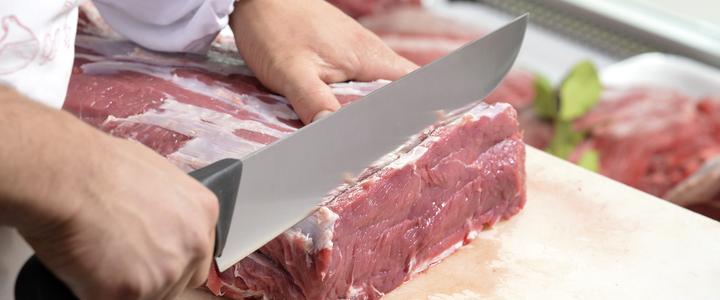4 of the biggest myths about British beef
Today, the British public is becoming ever more conscientious about what we eat, and specifically about the provenance of our food. Growing environmental worries have been a particular concern for some customers, who are frequently posing more and more questions to butchers about where and how their food is made. In order to provide a quality customer service, it helps to be forearmed with the answers - as well as a few specific bits of information that can help you dispel some of the most common myths associated with British beef. Here, we’ve summed up some of the biggest!
Myth 1 - Red meat and dairy products are bad for your health
Quite the contrary - red meat and dairy products are frequently cited as essential to maintaining a balanced diet throughout your life. This is partially because they have a significantly high nutrient density, which basically means they have a broad range of nutrients packed into a relatively small amount of food. This includes:
Iron: a mineral in the bloodstream that helps to carry around the oxygen from your lungs, transporting it throughout the rest of your body. Low iron is one of the most common nutritional deficiencies. The type of iron found in red meat is particularly notable for being easily absorbed the human body.
Zinc: This is important for the healthy functioning of the immune system, facilitating growth, fertility, and healing from injury. Red meat is one of the richest natural sources of zinc, as well as iron and other essential nutrients.
Selenium: an important antioxidant which is linked to reducing the risk of heart disease and certain cancers.
Today’s red meats are also naturally low in salt, and notably lower in fat than they were just 20 years ago. In fact, fully trimmed lean beef contains just 5% fat on average, while fully trimmed lamb contains just 8% fat. This has a large part of the reason why a balanced intake of meat and dairy provides protection against weight gain and obesity, as well as reducing the risk of type 2 diabetes and associated cardiovascular disease.
Myth 2 - Red meat and dairy products are filled with antibiotics and hormones
The British farming industry is actually notable for its standards of animal welfare, which are some of the highest in the world, as we’ve noted previously here on the blog. Britain is one of the lowest users of on-farm antibiotics across 31 European countries, being beaten only by certain Nordic countries such as Iceland and Sweden. This means that antibiotics are only used when absolutely necessary, and usage of them dropped by 53% between 2014 and 2018. Growth promoters are banned entirely, and have not been used for well over 15 years in the UK.

Myth 3 - British livestock graze on land that could be used for crops instead
It might surprise you to learn that the UK is actually uniquely well-positioned for raising livestock - about 65% of our land is better suited to growing grass rather than other types of crops. In fact, much of this land isn’t very useful for anything else, which puts the UK in a great position to use it for producing quality, nutrient-rich beef, lamb and dairy. As an extra bonus, this land can actually capture carbon dioxide too, which would otherwise cause notable environmental damage.
Myth 4 - British livestock consume food that otherwise humans could eat
87% of British beef is produced through forage-based diets. In otherwise, they find the food themselves. As we’ve touched on above, grass is by far one of the most useful resources for rearing livestock, and you can bet that British farmers put it to good use. About 70% of a typical British cattle herd’s diet is exclusively grass, and the rest of it is composed of by-products, silage and grains. Livestock farmers also tend to favour byproducts in particular, including things like bread crusts and brewers grains to feed their animals. This means that unlike the farming industries of some other countries, the UK farming industry isn’t a major driver of deforestation in other areas of the world.

These are just a few examples of some of the most widely-believed myths, though. For the full list (and sources on the above), don’t hesitate to take a look at the full myth buster release from the National Farmers Union of England and Wales. It should be useful information to help you maximise your knowledge of the provenance of your products - which is one of the many essential skills you need to be a successful butcher.
As well as skills though, you also need top-notch equipment - and that’s exactly where we can help here at Butchers Equipment Warehouse. We have a wide range of butchery equipment, from butcher’s knives all the way up to mincers and bandsaws. Why not take a look around and see what we’ve got in stock? If you’re looking for something specific, you can always give us a ring on 01254 427761, and we’ll be only too happy to help!




